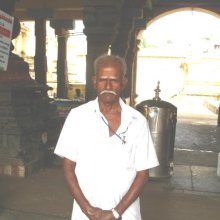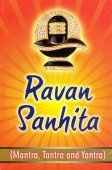Devaloka, Deva-loka: 15 definitions
Introduction:
Devaloka means something in Hinduism, Sanskrit, Jainism, Prakrit, Buddhism, Pali, Marathi. If you want to know the exact meaning, history, etymology or English translation of this term then check out the descriptions on this page. Add your comment or reference to a book if you want to contribute to this summary article.
Images (photo gallery)
In Hinduism
Purana and Itihasa (epic history)
Source: Cologne Digital Sanskrit Dictionaries: The Purana IndexDevaloka (देवलोक).—Seven in number—Bhū, Bhuva, Sva, Maha, Jana, Tapa and Satya; sacred to Indrāṇī; residences of Devaṛṣis.*
- * Matsya-purāṇa 13. 52; 61. 1-2; Vāyu-purāṇa 61. 88.

The Purana (पुराण, purāṇas) refers to Sanskrit literature preserving ancient India’s vast cultural history, including historical legends, religious ceremonies, various arts and sciences. The eighteen mahapuranas total over 400,000 shlokas (metrical couplets) and date to at least several centuries BCE.
Shaktism (Shakta philosophy)
Source: Google Books: ManthanabhairavatantramDevaloka (देवलोक) refers to the “world of the gods”, according to the Mukundarāja’s Saṃvartārthaprakāśa.—Accordingly, while explaining Kubjikā’s three forms: “1) In the world of the gods [i.e., devaloka] she is in the sattva state and is the white goddess of the Divine Current. 2) In the rājasika state she is in the world of men and, red in colour, she is the woman of the Current of Men. 3) In the world of the demons she is in a tāmasika state and, as Nature, she is Māyā, and the Kālī of the Current of Siddhas”.

Shakta (शाक्त, śākta) or Shaktism (śāktism) represents a tradition of Hinduism where the Goddess (Devi) is revered and worshipped. Shakta literature includes a range of scriptures, including various Agamas and Tantras, although its roots may be traced back to the Vedas.
In Jainism
General definition (in Jainism)
Source: The University of Sydney: A study of the Twelve ReflectionsDevaloka (देवलोक) refers to the “world of the gods”, according to the 11th century Jñānārṇava, a treatise on Jain Yoga in roughly 2200 Sanskrit verses composed by Śubhacandra.—Accordingly, “In the world of the gods (devaloka), in the world of men and in the plant and animal world, and also in hell, there is not that womb, not that form, not that place, not that family, there is not that suffering, not any pleasure [and] not that mode wherein these sentient beings are not destroyed by [their] comings and goings continually”.

Jainism is an Indian religion of Dharma whose doctrine revolves around harmlessness (ahimsa) towards every living being. The two major branches (Digambara and Svetambara) of Jainism stimulate self-control (or, shramana, ‘self-reliance’) and spiritual development through a path of peace for the soul to progess to the ultimate goal.
Languages of India and abroad
Pali-English dictionary
Source: BuddhaSasana: Concise Pali-English Dictionarydevaloka : (m.) heaven.
Source: Sutta: The Pali Text Society's Pali-English DictionaryDevaloka refers to: the particular sphere of any devas, the seat of the devas, heaven; there exist 26 such spheres or heavens (see loka); when 2 are mentioned it refers to Sakka’s & Brahma’s heavens. A seat in a devaloka is in saṃsāra attained by extraordinary merit: Dh.177; J.I, 202, 203; IV, 273; ThA.74; KhA 228; PvA.5, 9, 21, 66, 81, 89; Vism.415, etc.;
Note: devaloka is a Pali compound consisting of the words deva and loka.

Pali is the language of the Tipiṭaka, which is the sacred canon of Theravāda Buddhism and contains much of the Buddha’s speech. Closeley related to Sanskrit, both languages are used interchangeably between religions.
Marathi-English dictionary
Source: DDSA: The Molesworth Marathi and English Dictionarydēvalōka (देवलोक).—m (S) A common term for the seven superior worlds from earth to satyalōka: as opp. to the worlds inferior.
Source: DDSA: The Aryabhusan school dictionary, Marathi-Englishdēvalōka (देवलोक).—m A common term for the seven superior worlds from earth to satyalōka as opp. to the worlds inferior.
Marathi is an Indo-European language having over 70 million native speakers people in (predominantly) Maharashtra India. Marathi, like many other Indo-Aryan languages, evolved from early forms of Prakrit, which itself is a subset of Sanskrit, one of the most ancient languages of the world.
Sanskrit dictionary
Source: DDSA: The practical Sanskrit-English dictionaryDevaloka (देवलोक).—heaven, paradise; देवलोकस्य चर्त्विजः (devalokasya cartvijaḥ) (prabhuḥ) Manusmṛti 4.182.
Derivable forms: devalokaḥ (देवलोकः).
Devaloka is a Sanskrit compound consisting of the terms deva and loka (लोक).
Source: Cologne Digital Sanskrit Dictionaries: Shabda-Sagara Sanskrit-English DictionaryDevaloka (देवलोक).—m.
(-kaḥ) 1. Heaven or paradise. 2. Any one of the seven superior worlds, from earth to the highest or Satya loka, in opposition to those below the earth. 3. The particular sphere or heaven of any divinity. E. deva, and loka a world.
Source: Cologne Digital Sanskrit Dictionaries: Cappeller Sanskrit-English DictionaryDevaloka (देवलोक).—[masculine] the world of the gods.
Source: Cologne Digital Sanskrit Dictionaries: Monier-Williams Sanskrit-English Dictionary1) Devaloka (देवलोक):—[=deva-loka] [from deva] m. the world or sphere of any divinity
2) [v.s. ...] heaven or paradise
3) [v.s. ...] any one of the 3 or 21 ([Taittirīya-saṃhitā]) or 7 ([Matsya-purāṇa]) superior worlds, [Brāhmaṇa; Manu-smṛti; Mahābhārata] etc. (for the 6 d° lokas of [Buddhist literature] See, [Monier-Williams’ Buddhism 206 etc.])
Source: Cologne Digital Sanskrit Dictionaries: Yates Sanskrit-English DictionaryDevaloka (देवलोक):—[deva-loka] (kaḥ) 1. m. Heaven or one of the seven superior worlds.
[Sanskrit to German]
Sanskrit, also spelled संस्कृतम् (saṃskṛtam), is an ancient language of India commonly seen as the grandmother of the Indo-European language family (even English!). Closely allied with Prakrit and Pali, Sanskrit is more exhaustive in both grammar and terms and has the most extensive collection of literature in the world, greatly surpassing its sister-languages Greek and Latin.
Kannada-English dictionary
Source: Alar: Kannada-English corpusDēvalōka (ದೇವಲೋಕ):—[noun] the region of gods; heaven.
Kannada is a Dravidian language (as opposed to the Indo-European language family) mainly spoken in the southwestern region of India.
See also (Relevant definitions)
Partial matches: Loka, Deva, Teva.
Starts with: Devalokabhilashita, Devalokapala.
Ends with: Sadevaloka.
Full-text (+97): Rishiloka, Caturmaharajika, Devalokapala, Devalokegata, Agniloka, Six Devalokas, Karmadeva, Kamavacara, Indrani, Kimpuna, Bhandayani, Kanyahrada, Dandagauri, Kamupapatti, Kalpavriksha, Devarshi, Devacarika, Kovilara, Muppattumukkōti, Kushavati.
Relevant text
Search found 59 books and stories containing Devaloka, Deva-loka, Dēvalōka, Dēva-lōka; (plurals include: Devalokas, lokas, Dēvalōkas, lōkas). You can also click to the full overview containing English textual excerpts. Below are direct links for the most relevant articles:
Prasthanatrayi Swaminarayan Bhashyam (Study) (by Sadhu Gyanananddas)
7.1. Arcirādi Mārga: The Way to the Abode of Parabrahman < [Chapter 5 - Analysis on the basis of Soteriology]
Taittiriya Upanishad Bhashya Vartika (by R. Balasubramanian)
Verse 2.513 < [Book 2 - Brahmavallī]
Abhidhamma in Daily Life (by Ashin Janakabhivamsa) (by Ashin Janakabhivamsa)
Part 3 - Abodes Of Devas < [Chapter 11 - Planes Of Existence]
Factor 11 - Kukkucca (remorse) < [Chapter 2 - On akusala cetasikas (unwholesome mental factors)]
Part 4 - Food For Thought < [Chapter 11 - Planes Of Existence]
Puranic encyclopaedia (by Vettam Mani)
The Dawn of the Dhamma (by Sucitto Bhikkhu)
Chapter 19 - The Abodes Of Bliss < [The Sutta]
Chapter 22 - The World Of Dhamma < [The Sutta]
Chapter 16 - What Kondanna Knew < [The Sutta]
Samarangana-sutradhara (Summary) (by D. N. Shukla)
Related products

